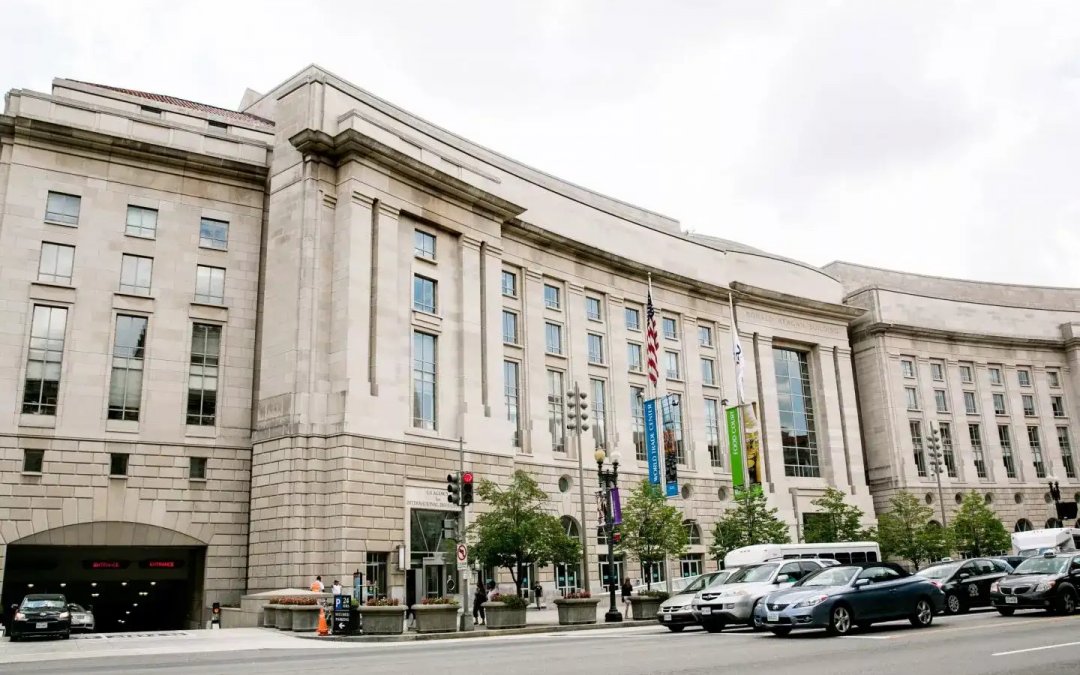WASHINGTON — The FBI is one step closer to having a new home at the Ronald Reagan Building.
The U.S. Senate Committee on Environment and Public Works (EPW) voted to repurpose the Ronald Reagan Building to hold the new FBI headquarters. The building is located near the Washington Monument, a few blocks away from current FBI headquarters at the J. Edgar Hoover building.
In 2022, Congress passed bipartisan legislation that directed the General Services Administration (GSA), which oversees federal properties, to choose from three options for the location of new FBI headquarters. The agency selected a site in Greenbelt, Maryland the year after.
Instead of moving forward with the GSA-selected site, the Trump Administration announced plans on July 1, 2025 to repurpose the Ronald Reagan Building to house FBI headquarters.
The GSA needs approval from the two congressional committees that authorize federal infrastructure — the EPW and the House Committee on Transportation and Infrastructure — to proceed with the new plan.
The EPW narrowly passed a resolution along party lines to approve the GSA plan to move the FBI to the Ronald Reagan Building Wednesday.
All that remains to finalize the FBI’s move to the Reagan Building is approval from the House committee, which blocked the Greenbelt plan in June.
Some Democratic senators suggested the change of plans was a targeted attempt to pull investment from Maryland, a Democrat-led state — something their conservative colleagues refuted.
“We’re talking about billions of dollars with an excess of federal property that we can’t get rid of,” Sen. Kevin Cramer (R-N.D.) said. “This is not something of a Maryland-versus-Virginia competition. This is about where the FBI should be located.”
Sen. Angela Alsobrooks (D-Md.) raised concerns that the Ronald Reagan Building could not reach the security standard needed for the FBI because of its proximity to public spaces: the building is located above a metro station and includes a public parking garage.
She also said the resolution undermined bipartisan cooperation by selecting a location that was not one of the three options identified by Congress in 2022.
“Congress provided funding and oversight, and GSA made its selection. That selection remains the only legitimate choice,” Alsobrooks said. “And so again, I am extremely disappointed today — disappointed that we abandoned this committee’s bipartisan traditions on GSA prospectuses, and disappointed that we’re not upholding a bipartisan law in a bipartisan way.”
EPW Chairman Sen. Shelley Moore Capito (R-W.Va.) said in response that the recent proposal to repurpose the Ronald Reagan Building was a practical option to lower taxpayer costs, rather than a political move.
“There is nothing in law that prevents our Committee’s approval of the Ronald Reagan Building prospectus today,” Capito said. “I believe it is the right policy to use a facility already owned by a federal government at a lower cost to our taxpayers.”
The EPW also approved seven nominees to positions related to energy and the environment — all but one with 10-9 votes along party lines.
The exception was Ho Nieh, the nominee to the Nuclear Regulatory Commission, who received bipartisan support and a 13-6 vote for approval.
“The meeting went as expected, which is that the Republican majority drove questionable nominees through,” Sen. Sheldon Whitehouse (D-R.I.) said. “I was glad to see bipartisan support for nominees who were not a problem.”
The nominations will now be sent to the Senate floor for confirmation.

